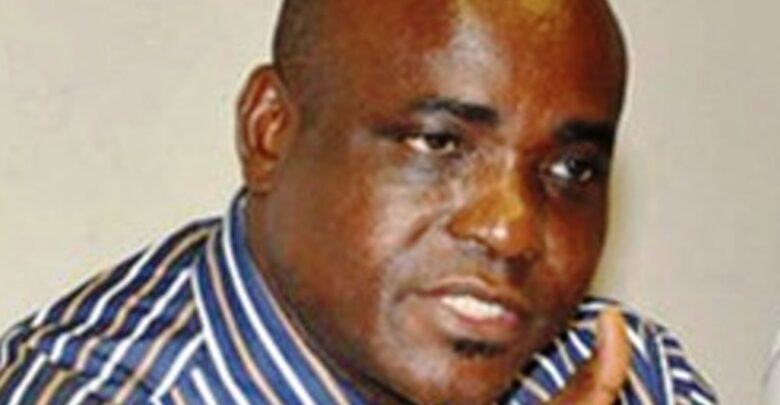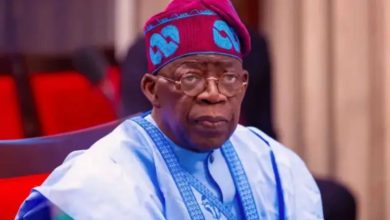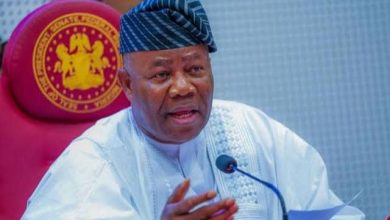That Sen. Ita Enang’s Call For Abrogation of 13% Derivation Revenue For Niger Delta

On Thursday, September 9, 2020, special adviser to the President on Niger Delta, Sen. Ita Enang, lambasted South-South governors for their unconscionable and conspiratorial failure to honestly and effectively use the entitled monthly 13 per cent derivation revenue accruable to them from the federation account in developing the Niger Delta.
Enang was speaking at a webinar on “Resolving the Host Communities Question”, an initiative by the Order paper in partnership with the House of Representatives’ Committee on Niger Delta and the Nigeria Natural Resource Charter (NNRC). The former senator predicated his critique on the prevailing sad narratives on the Niger Delta, a region where oil exploration, exploitation and exportation began more than 63 years ago, yet there is nothing tangible to show for it.
Categorically, Sen. Enang accused South/South governors of insensitivity, extravagance, poor leadership and lack of initiatives for the development of the region. His speech conveyed the anger and worries in his heart over a situation where the governors, upon such huge allocation, still look exclusively onto the Federal Government for the development of the Niger Delta region, even with the presence of another dollar-gulping interventionist agency like the Niger Delta Development Commission (NDDC), which has its own specific annual budgetary allocation.
“The governors have not been kind to the Niger Delta, and I want to pray that the National Assembly amend the Niger Delta Development Commission Act, as well as amend the Constitution so that the 13 per cent derivation does not go to the governors. It should go to the host communities and targeted at development of these communities. This is because the governors use the 13 per cent derivation to buy aircraft and use the money to develop and build many houses and these monies are found in Banana Island and foreign countries”, Ita Enang had fired.
Earlier, about a year ago in October 2019, a one-time chairman of the Niger Delta Development Commission and one of the architects of the Niger Delta Master Plan, Amb. Sam Edem, in challenging Niger Delta governors to rise up to the critical needs of the region, had buried his worries in a mind-cracking rhetorical question: “Have governors and states in the Niger Delta region ever sat down to draw up a peculiar master plan or combined efforts to benefit from the oil and gas sector in the region, so as to impact on their people without depending solely on the initiatives of the Federal Government?”
Since 2000, humongous budget sizes have been a competitive trend amongst South/South governors, yet no chunk of it was ever deliberately carved out by any concerted special arrangement for any landmark project of collective or populist interest in the Niger Delta.
For instance, in 2019 alone, the combined budgets presented by the six Niger Delta State governors ran into some uncountable trillions: Akwa Ibom (N670.7billion); Cross River (1.043trillion); and Rivers State (N480.4billion). Others were Delta State (N390.3bilion); Edo State (175billion) and Bayelsa State (N299billion). To Ita Enang, this scenario of lack of plan for the Niger Delta by the governors predisposes a great danger, especially considering the threatening possibility that oil may no longer be viable in the world market in years to come.
Perhaps the only time in recent memory that South/South governors may have come closer to having a shared ideology on how to jointly tackle the accumulated socio-economic needs of the zone was when they promised to revive the “BRACED COMMISSION”. The chairman of South-South Governors Forum and Delta State Ggovernor, Senator Ifeanyi Okowa, had dropped the hint as outcome of a meeting by the affected governors, held in Asaba, capital of Delta State, on Thursday, March 5, 2020.
Read Also: NDDC’s Sources Of Funds
The BRACED COMMISSION is an extant socio-economic model designed 10 years ago by former governors of the zone for devising, promoting and propelling socio-economic growth and development of the South-South, but which was abandoned. Each of the alphabets in BRACED as an acronym represents states in the South-South – Bayelsa, Rivers, Akwa Ibom, Cross River, Edo and Delta. But there is curiosity over what may be happening ever since then.
While Ita Enang’s challenge must be seen as a wake-up call to the affected governors, one thing the former lawmaker should not have pretended to have forgotten in his abrasive critique is the perplexing question of how well the Federal Government has kept its own part of the bargain for the Niger Delta with the remaining 87 per cent of oil money.
Many Nigerians have sanctioned the Federal Government that has been the primary and highest beneficiary of proceeds from the natural resources of the Niger Delta for deliberate failure to adopt the prototype model that was used in the rapid development of the Federal Capital Territory (FCT) in the case of the Niger Delta, which saw it sprang up from an impenetrable virgin forest into one of the most beautiful metropolises in the world today in just a matter of years.
Still, some are of the opinion that the 13 per cent is far too little for the Niger Delta region when compared to the contributions of the zone to national development; hence they demand for acceleration of proceedings towards the passage of the Petroleum Industry Bill and National Policy of Petroleum, which experts say will further enhance development in the Niger Delta.
Extant records show that the earliest steps towards allocating special funds for the development of the Niger Delta may have begun following the recommendations of the Sir Henry Willink’s Commission of 1958; but more than 20 decades had to pass before serious attention could be said to have returned to the area in late 1980s into early 1990s. It was during General Obasanjo’s tenure as military Head of State between 1979/1983 that a Presidential Task Force codenamed “1.5% Committee” made recommendation for a paltry 1.5 per cent of the Federation Account to the oil-bearing regions.
In 1992, the military administration of General Ibrahim Babangida upped the percentage to three per cent with the advent of the defunct Oil Mineral Producing Areas Commission (OMPADEC). Today’s 13 per cent began to see the light consequent upon the bequeathed recommendation by the Constitutional Conference of 1995. Even at that, although it was enshrined in the 1999 Constitution, the implementation of the 13 per cent met serious resistance and suffered many delays not until former President Olusegun Obasanjo brought it into effect around year 2000.
Those who see the 13 per cent as too little for the Niger Delta states have argued that if a whopping 50 per cent was granted to states before Independence by virtue of their natural resources that were the live-wire of the Nigerian economy, the 13 per cent of today should be seen as crass injustice to the Niger Deltas states. By and large, the fact remains that governors of the zone have not been able to justify this allocation; otherwise there should be justification to the contrary with landmark developmental projects.
Niger Delta governors seem to share the common belief that the growth and development of the Niger Delta beyond the borders of their immediate states is the exclusive responsibility of the Federal Government through the NDDC and other agencies like it. This is a fertile misconception that has adversely affected the region and level of commitment by the governors.
Maybe that is why Ita Enang opines that the 13 per cent derivation should be paid from source directly to host communities, like it is now for local government allocations. But will that still solve the problem considering that those to administer the funds will not come from the moon? All considered, accountability and sustainable functional model still remains the answer.
But Sen. Enang has his greatest fear: “If we do not take care, the Niger Delta will be given the same treatment Enugu was given. When oil ceases to be important, when solar energy and other alternative sources are exploited to the fullest, we would be looking for who to pay to come and rid our area of oil pollution. See what has happened to Enugu; it has been abandoned now. It was the state where coal was taken to power our locomotives and energy; but today, Enugu is suffering from erosion, suffering from ecological challenges”.




